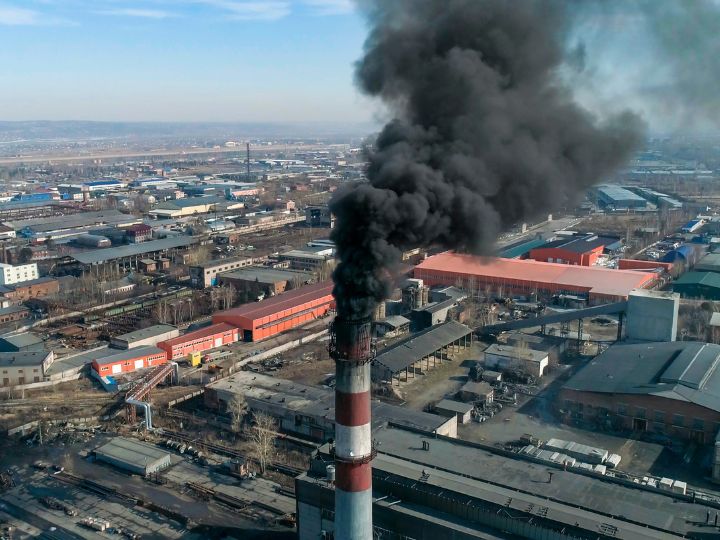In light of the United Nations COP28 climate summit ongoing in Dubai, the University of Houston – a leading voice in the broad commercial deployment of carbon capture, utilization, and storage, known as CCUS – is hosting a timely symposium titled “CCUS Commercial Deployment: What Will It Take to Make It Happen?” on Thursday, Dec. 7. These technologies and businesses must play a key role in the energy transition, by reducing climate-damaging carbon dioxide emissions and enabling the energy transition to reliable and affordable energy that is environmentally responsible.

A University of Houston white paper, commissioned by the Houston CCS Alliance and the Houston Energy Transition Initiative, attests that the Houston Gulf Coast region, with a network of chemical and manufacturing facilities producing between 90 and 110 million metric tons of carbon emissions each year, is poised to take the lead. Six announced CCUS projects are expected to come online in the area by the end of the decade.
But it will take more than a handful of projects to ensure carbon capture technologies are deployed at a scale capable of significantly reducing emissions. The symposium will explore the underlying infrastructure requirements, including new pipelines and storage sites, along with additional sources of electricity and water. The workforce and supply chain impacts of CCUS to our future will be critical to realizing aspirations. The event is organized by the Division of Energy and Innovation and the UH Center for Carbon Management in Energy (CCME) at UH.
“Interest in CCUS is high and especially by industries committed to investing and growing, and the Houston region is a natural place to create a commercially viable and robust business around the technology,” said Charles McConnell, energy center officer at CCME. “However, much work remains to ensure the required infrastructure will be ready when it is needed. We don’t have unlimited time as business development planning, permitting and construction must begin now to achieve aspirational objectives. Our mission at UH is to clearly identify the realities of meeting such aspirations.”
The white paper, authored by McConnell, offers the first detailed assessment of the infrastructure needed for both the initially announced projects and future projects that will be required to reach emissions reduction goals. It covers scenarios ranging from today to conditions centered around achieving net-zero goals in the next 25 years and beyond.
UH graduate students Gautam Kakati and Zhiyuan Li also worked on the paper, “CCUS Infrastructure: Preparing for the Future of Houston,” which is a detailed roadmap for broad commercial CCUS deployment. Copies will be available at the symposium.
The half-day event will share key insights from industry and academic leaders with expertise, perspectives and experiences related to the CCUS market.
Symposium panels and presenters include:
- CCUS Success at ADM Decatur, Illinois – John Wiens, chief executive officer of Warwick Carbon Solutions; Colin Graves, vice president of innovation at ADM; Matt Murphy senior consultant with Mac Strategies Group: and Fred Eames a partner at HuntonAndrewsKurth. McConnell, who was also an assistant secretary of energy at the U.S. Department of Energy (2011-13) with a 40-year energy industry background, will moderate.
- Carbon Dioxide Pipeline Challenges – Nic Medina, public and government affairs manager with ExxonMobil; Dan Cole, formerly vice president of CCUS commercial development and governmental relations with Denbury; Elizabeth Worrell, managing director and chief legal counsel with the Pipeline Contractors Association: and Stephen Lee, EVP of E&C at Navigator CO2. Cindy Yeilding, director with Denbury and former senior vice president with BP America, will serve as moderator.
Ramanan Krishnamoorti, vice president for energy and innovation at UH, noted the timeliness and importance of both the white paper and the symposium to the future of the Houston region and beyond.
“This infrastructure will also be needed for other components of a future clean-energy economy, including low-carbon petrochemicals, a net-zero grid and the increased use of hydrogen,” he said. “As the Energy University located in Houston, a city rich in diverse talent, we have a unique advantage of continuing to build on Houston’s global leadership and demonstrating sustainability solutions at scale. CCUS is a lynchpin for such energy transition investments and why UH Energy invests in our research, students, and external engagement with our community.”
While the event is open to the public and free to attend, advance registration is needed. Lunch will be served and there will be a networking opportunity following the presentations.
WHAT: CCUS Commercial Deployment: What Will It Take To Make It Happen?
WHO: The University of Houston Division of Energy and Innovation and Center for Carbon Management in Energy
WHERE: Theater Room, Student Center South at the University of Houston , 4455 University Dr., Houston, TX 77204 ( Click here for map)
WHEN: 8:30 a.m. - Noon, Thursday, Dec. 7. Lunch served Noon-1 p.m.
To learn more about the event and to register, click here.